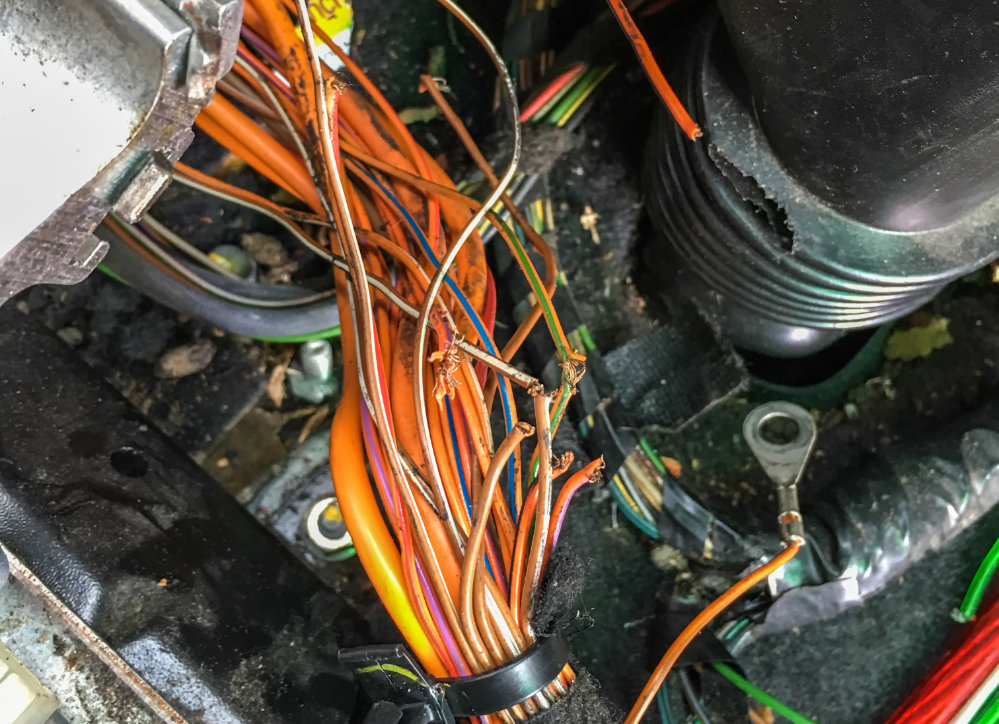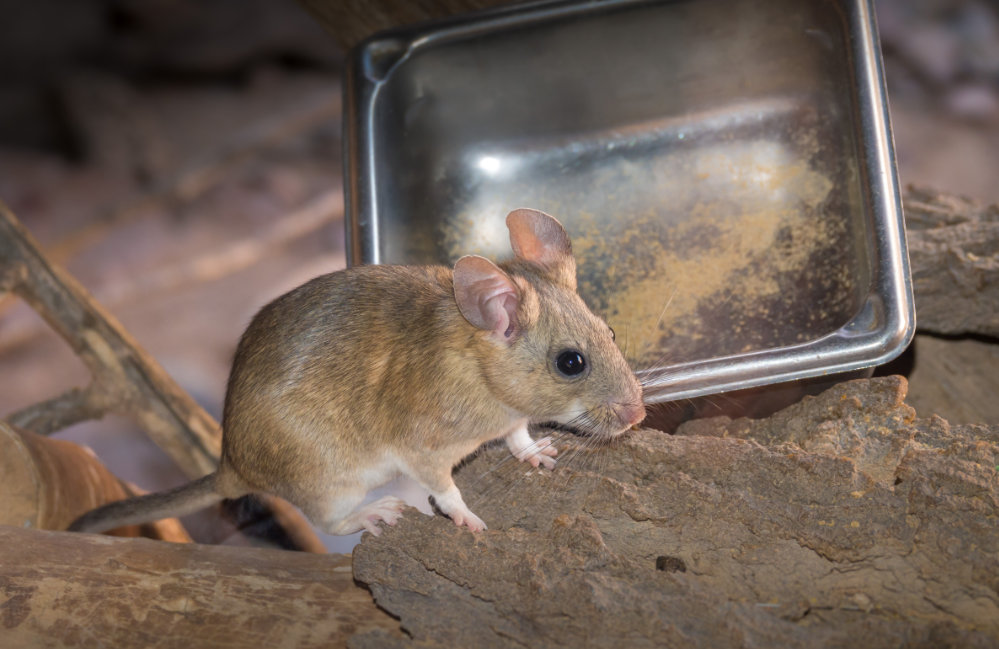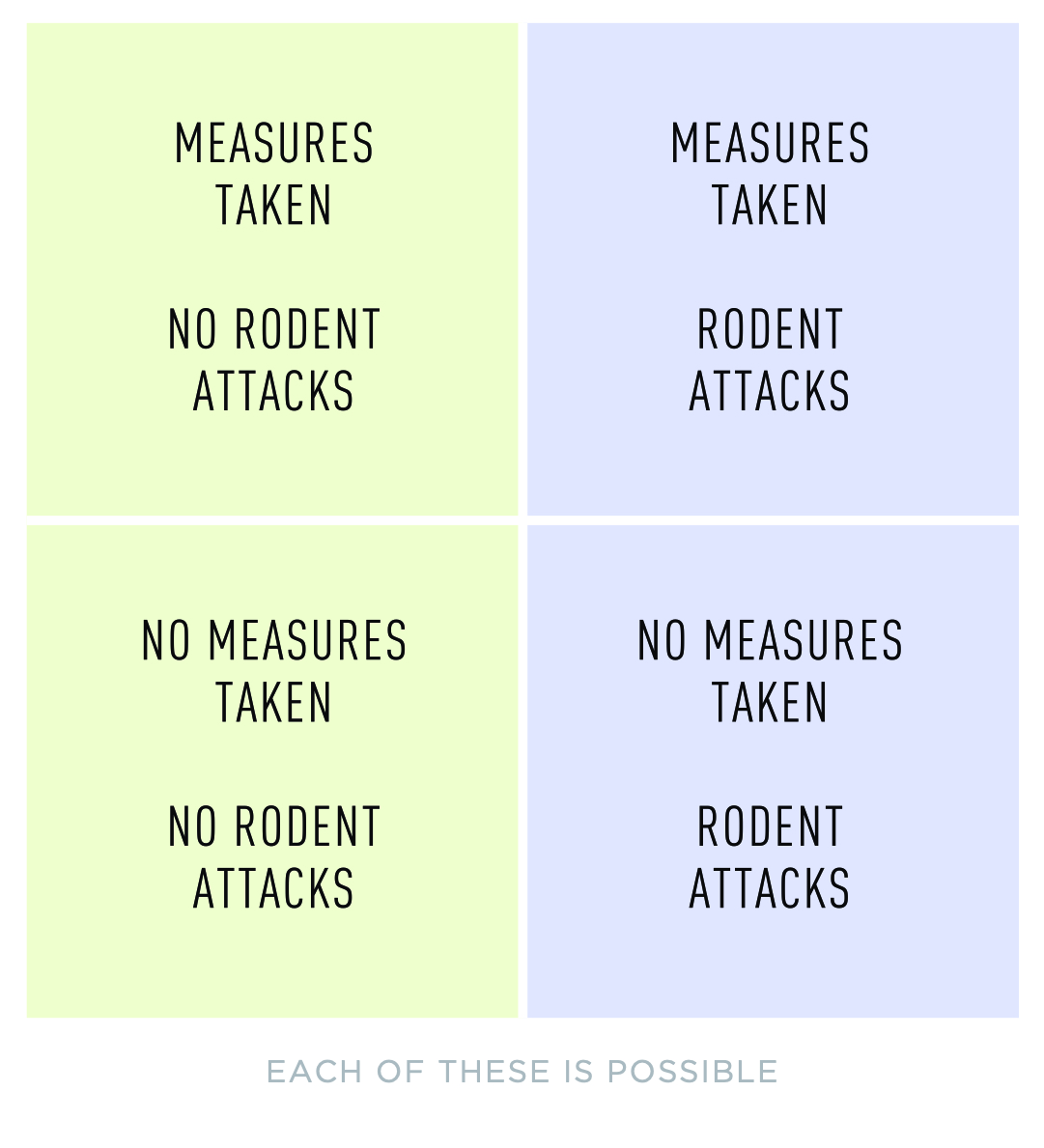
IF YOU’VE BEEN PART of the mobile living community for any length of time you’ve probably heard warnings about rodents invading someone’s rig, taking up residence in the ductwork, leaving foul smelling pee and poo everywhere, breaking into the food supply and, worst of all, gnawing on the wiring and disabling the vehicle. And if you’ve heard about these warnings you’ve probably also heard of dozens of ways to prevent these attacks. Open hoods, bright lights, peppermint oil, fabric softener sheets, Irish Spring soap, sound generators, cats, dogs, and more.
The thing is, these warnings and solutions are only what the scientific world calls “anecdotal evidence.” They are anecdotes, stories — probably true stories in most cases — but they are not tested under controlled conditions with repeatable, verifiable results.

Correlation versus causation
Just because you take an action and the desired result follows, it doesn’t necessarily mean the action caused the result. They could simply be unrelated things happening at the same time in the same place. But it might mean something if the desired result always follows the action.
Confirmation bias
Confirmation bias is when we look for and hold to things that confirm what we hope to be true, while not noticing or even reject things that challenge what we hope to be true. Because we don’t like being wrong. Because we don’t like losing hope. Does the anti-rodent tactic you’ve just deployed work? You hope so. You want to believe it does, otherwise you’ll need to try something else and hope it works.

We remember the exceptions
How often do rodent invasions actually happen? Is it common or relatively rare? Things like this make the grapevine only when they happen, not all the times they don’t happen. Nonevents are not news, but a handful of cases, over an unknown number of years, out of the combined experiences of hundreds of thousands of vehicle dwellers, turns it into something we worry about.
Yes, it happens
Rodent invasions happen to those who don’t try to prevent them — and to those who do. But why does it happen, and under what circumstances? Since there seems to be scant connection to the use or non-use of preventive measures, then perhaps there’s a more dominant reason. Weather conditions? The presence of predators to hide from? The absence of food in the natural environment? Other things beyond our control? All that stuff laboratory testing can’t replicate?
But it’s only my experience
I’m one of those who doesn’t take measures. I’ve had three mouse incidents in almost ten years, but none were a serious enough problem to cause me worry. I didn’t know about the first event until I tried to figure out why my van’s heater blower vibrated. I discovered the spin dried remains of a mouse.
Years later I became aware of the second mouse because I could smell it. I emptied the van and searched for damage. There was none, only the odor of mouse pee. I scrubbed everything well. End of problem.

The third time I heard rustling in my trash in the night. I turned on the light and shook the wastebasket. A mouse ran out and scurried into the dash. I waited. It came out again (see photo above) and dove back into the trash. It was clearly more interested in food scraps than the yummy wires in the dash or under the hood. I covered the wastebasket with an atlas and cutting board and let it feed on whatever it could find. In the morning I walked the trash away from camp and freed the mouse.
I’ve camped with people who take measures against rodents. When none of us have rodents does it mean their lights and open hoods and peppermint oil worked? Or does it mean there were no attempted attacks, or there were no rodents in the area?

I’ve also camped with those who took measures but were still visited by rodents while I wasn’t. What does that mean? Luck? That they had something more appealing to the mice — something so tasty they’d overcome their fears? Or does it mean the measures don’t deter rodents?
Mice will be mice
I’m highly skeptical of all the deterrents because I think the only way to prove any of the measures work would be if in a group of campers the only ones attacked were those who took no measures. Then repeat that test several times and see if the same thing occurs. I don’t know a case of that ever happening.
If there are rodents in your area scrounging for food, and you have something edible, they will find a way to get it — lights and scents and sounds be damned.

Keeping a cat seemed to work well, but there are other concerns then.
I did use mouse traps to remove the problem twice & have rodent bait in hard to get to dark places (like inside the dash where I have to pull the radio to get to it).
I did learn (the hard way) to check the engine for wire damage BEFORE you try to start it, shorted wires ruined the computer when I tried to start it after sitting for some time. Then it was not just repairing the damaged wires but finding an new ECU.
We use mothballs in confined, UN-occupied areas. Cheap, effective for most all critters.
I like the “wastebasket” trap…offer the best accommodations and actively address the threat.
I’ve had packrats/mice in the van but those were easily caught with traps.
In Flagstaff something big (ground squirrel?) silently FILLED my engine bay with sticks and other debris. Enough to jam the transmission shifter. They chewed something because I have 3 CELs on since then. Van continues to run fine.
Related blog post with pics:
https://mouse.mousetrap.net/blog/2022-11-11-catching-up.html
Have four cats and in the past five years have had two mice problems. First time they just went away though I used steel wool, spray foam, traps (empty), and bait (carefully due to cats). Second time they were in a box, dumped them out in the chicken pen….their little feet never hit the ground!
Not five minutes after I read this I found mouse poops, then five minutes later I found a drown mouse. I haven’t had any in years. Maybe you jinxed it. ?
Could you do a post about not having mice for several years? Ha!
One thing I didn’t see mentioned was using a bucket of water outside your rig with a ramp so they end up drowning. You could put a bit of peanut butter on the inside to attract them.